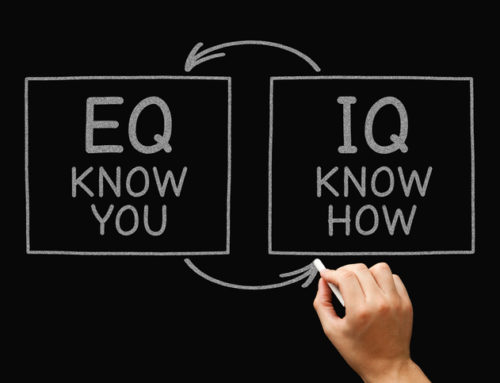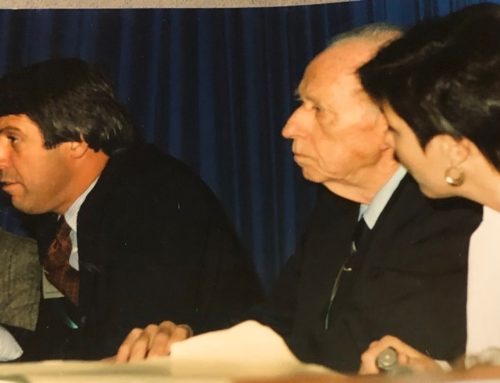by David Bork
This column is not for everyone. You will have to read to the end to determine if it has meaning for you.
What follows is an actual case, somewhat “sanitized” to protect the identity of the company and the individuals.
Buggy Whips to Beamers & Benz
The business in this case is an 85 year-old car store. It all began as a dealership for a single U.S. car manufacturer.
Think: 1926. It was another time in almost every respect. The great market crash of 1929 was yet to come; it was a rural farming community where available cash was seasonal; everyone worked hard and knew everyone in the community. Fred Yost, the founder was an affable man who could charm the skin off a snake! He extended credit to buyers because he knew them to be persons of integrity and that he would get his money when they said he would.
When the Crash of ’29 came, Fred continued to maintain his relationships with buyers, he extended longer terms and his loyal customers paid on time. They all survived the Crash and both customer and car dealer remembered who had helped them in the hard times.
Through the 30s and 40s Fred had a quota of cars from the manufacturer that he parsed out to loyal his customers. Fred had a reputation as a man of integrity, as good as his word. His ancestors had come to the region in the 1760s and the Yost name was respected and revered. Fred held true to his ancestors’ values and it paid off in his car business.
In the early 50s, Oliver Yost, Fred’s eldest son came into the business. In primary and secondary school and at university, Oliver had been well educated by Jesuits. He was very bright and he learned to follow the business model created by his father. That worked for many years but over time, the business model for the automobile business changed. Unfortunately Oliver wasn’t able to change the model and adapt to more modern methods. As a result, the business stagnated.
Today, a successful car dealer makes money on the front end of the deal, on the back end – meaning the financing, insurance and with a host of extras, add-ons and other savvy business arrangements.
About 1980, Oliver’s son, Alan, entered the business, right out of college. {Mistake number one – he should have worked for 3 – 5 years elsewhere.} Alan is a fine man, intelligent but determined to find the easy way through everything. He never excelled in the business. Fred’s second son, Charlie, graduated from college and Fred told him there was no room in the car dealership for him Charlie went to work for a financial company that handled the finances for car dealerships. In this role he had to visit one dealership after another, review their financial details and make certain they were in compliance with the requirements of the finance company. It was a “take no prisoners” kind of job. In his five years in the job, Charlie learned a great deal about how to maximize the profits in a car dealership. {Critical point: He proved he could do the job, something I recommend.}
Fred Yost saw Charlie’s talent and invited him into the business. In the next twenty years, Charlie transformed the dealer ship into an award winning business with great profitability. Fred felt it only right that Charlie be rewarded so when it came time to sell or gift his shares to Alan and Charlie, he did it in a ratio of 1:3, with Alan getting one share for every three Charlie got. Fred recognized the principle of rewarding performance.
Alan was a lackluster performer, always taking the easy way through any task. On the other hand, Charlie was a “producer.” He hired people like himself and together with that management team, made the now four car stores, BMW, Mercedes, Chevrolet and Dodge/Jeep into an automotive empire, prized by the manufacturers.
Over the years, as Charlie was “giving his all” to make the business highly successful, he watched as Alan coasted along, took his large salary and ¼ of the profits. It wasn’t long before Charlie had a big resentment toward Alan. They never had been buddies for much of their youth. The time when they might have built a working relationship they were at different boarding schools. It all came to a head when Charlie said, “I want Alan out of the business.”
Years before Fred had insisted that the brothers have a buy-sell agreement. It was in place and had it been the determining document, Charlie would have paid Alan just under $ 10mm.
Alan wanted more than the buy/sell would give him and had hired an adversarial, highly litigious lawyer who worked on a contingency and promised Alan he could “…get a lot more.” It was going to be WAR!
Fred was very upset for he knew that if Alan proceeded with his plan, the family relationships would be negatively impacted, even destroyed. It was more than he could face at 78 years of age.
There was a financial consultant who had been an advisor to the family for many years. He knew more about the family and the business finances than any family member. He also had their trust. On his recommendation, the family engaged me to help them work through this difficult process.
I met with the family, gathered the data and in doing so, discovered that one of the most important core values of the family was their commitment to function from a place of integrity.
Integrity: Firm adherence to a code of especially moral values, incorruptibility.
Alan had a wonderful, loving relationship with his grandfather. During his latter years, Fred and Alan had lunch once a week. In those lunch meetings, Fred told Alan the stories that only a founder of a business can tell. Those stories all contained a moral: do business with integrity.
I had the notion that if I could appeal to Alan’s respect for his grandfather and his commitment to doing business with integrity, I could help them avoid a break up in the family.
I proposed that Alan and Charlie engage the financial consultant to come up with a recommendation that was what I called the “Elegant Agreement” that would be the basis of the buy out, not the buy/sell agreement that was in place.
For me, an Elegant Agreement is one that is grounded in integrity. It has been said, “Take the high road through life. The view is better and it is less crowded.” This means doing what is right rather than just being greedy, going for all you can get.
Here is the Yost Brothers’ Elegant Agreement that provided the guiding principles for their settlement:
- Schedule of events leading to closing. {This assures an ending to the transaction.}
- Parties are “somewhat” dissatisfied with the final terms. {Seller gets less than his fantasy price and buyer pays a bit more than he expected, in this case, more than Buy/Sell would require.}
- Claw back provision. {If entire business is sold within a specified period, seller gets some of the ‘up side.’}
- Efficacious tax treatment for all parties. {Both buyer and seller agree to make such accommodations as a longer pay out which means less net tax on the transaction, or other such concessions.}
- Post Agreement “Public Face” {Agreement about how the parties will interpret the transaction in the community. No negative statements will be made by either party.}
- Clean separation both physically and emotionally. {Seller agrees not to wander back into the dealership and “disturb” operations.}
- Scheduled use of beach property by sell and seller’s children. {Through the business, the brothers owned a beach house that was part of the transaction. This provision helps the continuity of the family relationships.}
- Clear termination of all business related conditions. {No such things as health insurance or a new car every year. A done deal is a done deal.}
- Post transaction goal is to have an amicable mutually satisfying relationship with all family members. {Clear statement that family relationships are the priority.}
FINAL OUTCOMES
Had these brothers gone to court, it would have ended any relationship between their respective families and their parents would mourn the break up of the family for the rest of the years.
In their use of the “Elegant Agreement,” they took the “high road” in the transaction. Alan received a premium of about 10%. Charles was happy that he had complete control of the business, to do as he thought was right. Further, he
now has 100% of the upside of the business and is in a position to receive the full benefits of his efforts.
It was a Win-Win for everyone and the Elegant Agreement preserved the family relationships. Is the “high road” something that would be a good thing for your family business?
Does Your Family Business Need Help?
Family Business Matters has extensive experience assisting family businesses. With many decades of experience, we understand the wide variety of challenges that families face as they work together to build, grow and sustain a thriving family business generation after generation. Through conferences, continuing education programs, family business retreats, speaking engagements and private family business consulting services, Family Business Matters has assisted more than 450 family-owned businesses around the world chart their way through family business issues of all shapes and sizes.
Contact Us
For more information on how Family Business Matters can help your family business survive and thrive, please contact us today at (970) 948-5077.






